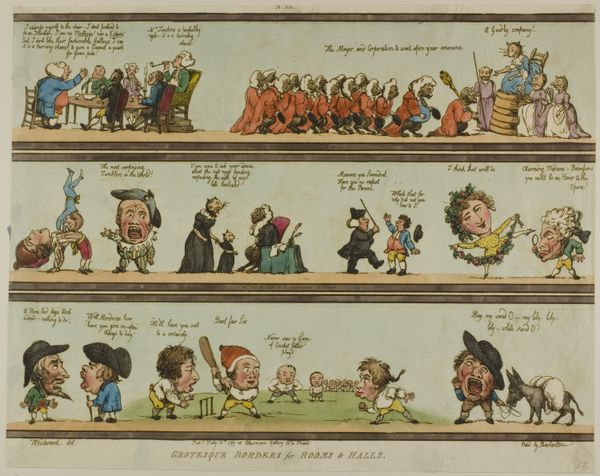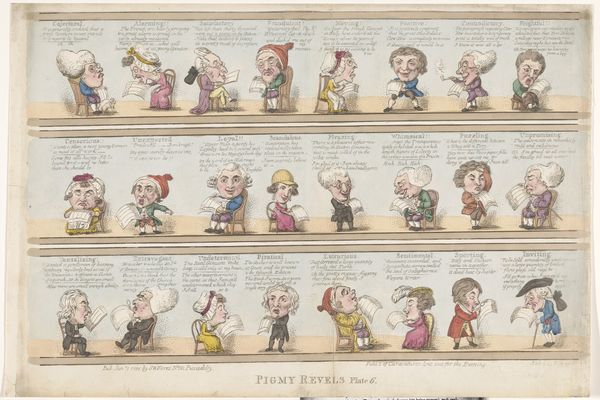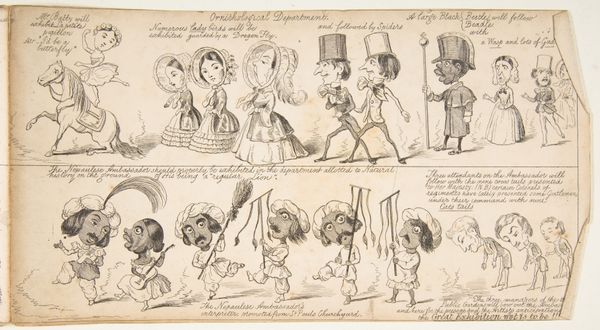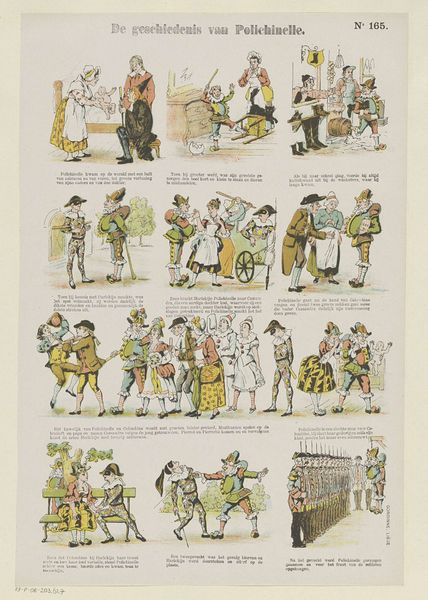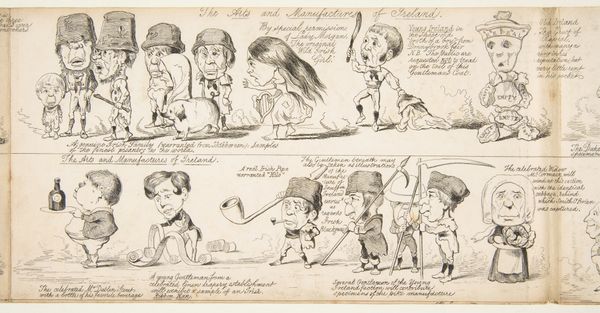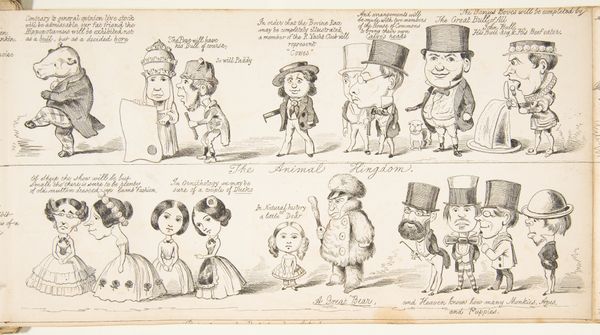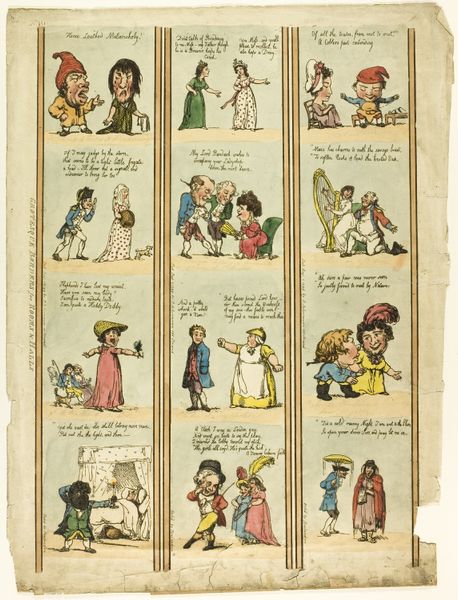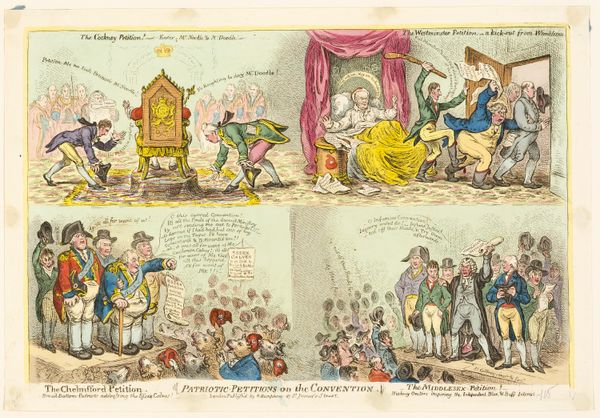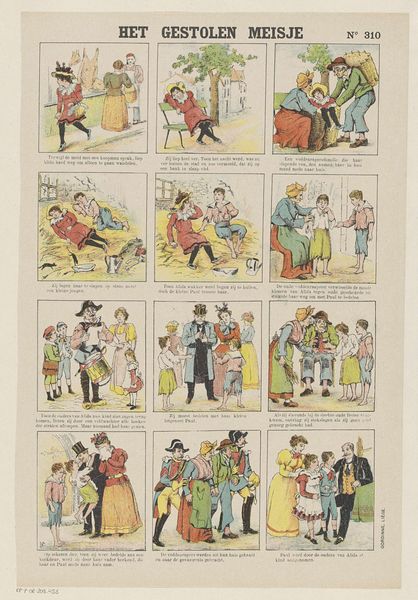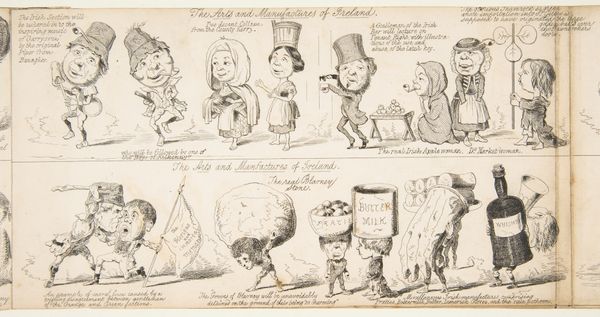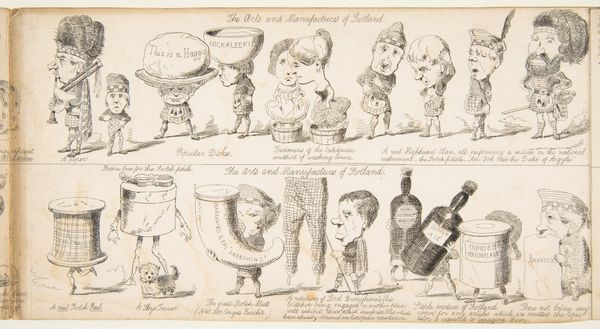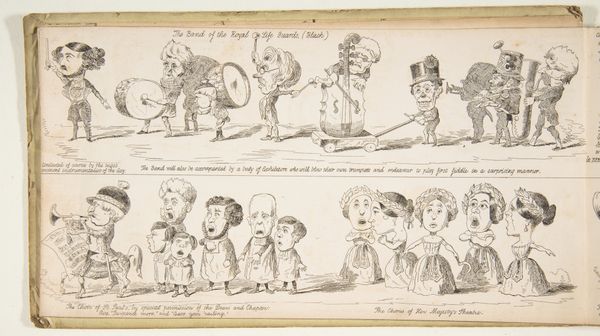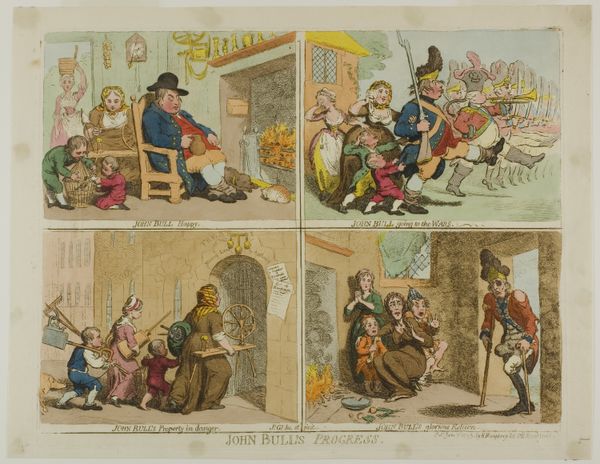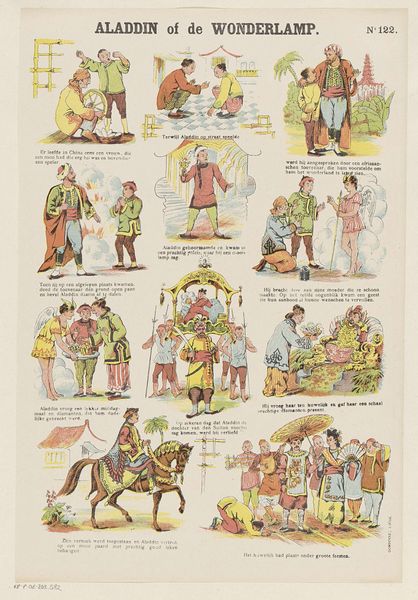
drawing, print, etching, paper
#
drawing
#
narrative illustration
#
narrative-art
# print
#
etching
#
caricature
#
paper
#
romanticism
#
genre-painting
Dimensions: 365 × 450 mm
Copyright: Public Domain
Editor: So, this is Thomas Rowlandson’s "Grotesque Borders for Halls & Rooms," possibly from 1799. It’s an etching and print on paper, currently residing here at the Art Institute of Chicago. It's just packed with visual information. How do you even begin to interpret a work like this? Curator: It’s a visual feast, isn’t it? Rowlandson was a master of capturing the social mood of his time. Look at the exaggerated features, the caricatures. They’re not just funny; they're a form of social commentary. What figures or activities strike you as particularly evocative of late 18th-century life? Editor: I’m drawn to the bottom row, especially the race and the child being swung into the air, seemingly against her will! It feels like a dark humor underlies it. Is that typical of the period? Curator: Absolutely. The "grotesque" isn't just about ugliness, but a distorted reality that reveals deeper truths. These borders likely satirized the pastimes and social rituals of the wealthy. The symbols here are key, especially the clothes, how people behaved, and what pastimes were on show. Note how the children lack agency. This could indicate something bigger. Can you think what? Editor: Maybe a commentary on social hierarchy and the expectations placed on children even back then? Curator: Precisely! Rowlandson employs humor, but look closer – it unveils power dynamics and perhaps critiques of the very social structures he depicts. This type of "grotesque" art asks us to consider how our actions reflect the prevailing beliefs and values of the time. Editor: It’s fascinating to think that what might seem like silly drawings were actually loaded with so much cultural significance. Thanks for your help, Curator! Curator: My pleasure! And it all stems from paying attention to symbols, even seemingly silly ones. They often have a story to tell.
Comments
No comments
Be the first to comment and join the conversation on the ultimate creative platform.
